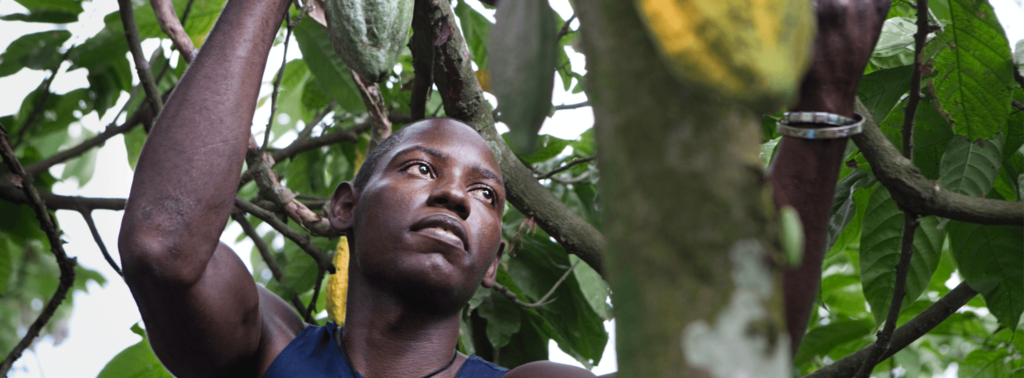CONACADO is a union of cocoa co-operatives in the Dominican Republic whose cocoa is sold to Fairtrade and other export markets.
About CONACADO
The Dominican Republic is the second poorest country in the Caribbean after Haiti, with forty-two per cent of its population of 9.6 million living below the poverty line. Cocoa is grown by around 40,000 small-scale cocoa growers. One of the main agricultural exports, it is worth around $60m a year to the economy.
CONACADO is made up of 182 small-scale producer associations with a total membership of 10,000 cocoa farmers. The average farm is 4.3 hectares (10.6 acres). Cocoa is grown under the shade canopy of tall native trees and smaller banana, citrus, and avocado trees whose fruit is sold at the local market. Vegetables are grown for home consumption.
Almost half of members’ production is now sold to the Fairtrade market. The additional income has been invested in processing and warehouse facilities to improve the quality of their cocoa and 30 extension officers have been employed to provide technical training to improve yields, convert to organic production and plant new trees. Schools have been built and repaired, with scholarships and equipment provided to students from poorer families. The new IT centre helps children with school work and brings the internet to the community. A clinic, free medical checks, and clean water projects are improving health.
Ramigia Moya is a 68-year-old widow and cocoa farmer whose daughter and son-in-law help on her farm. She now has a tap outside her home providing piped spring water for washing and other household chores.
Mariano Manzuela, a 64-year-old cocoa farmer with a wife and 11 children, is one of the poorest farmers in his community.
Fairtrade Premium projects have benefitted his family in several ways:
- He has taken out a loan to extend and repair his house
- His children have received scholarships to pay for school expenses and exam fees, and
- A new classroom is being built at the primary school his youngest son attends.
Four of his children are still in school and he hopes they will be able to finish their education, unlike one of his older daughters who had to give up her university place because the expenses were too high.
